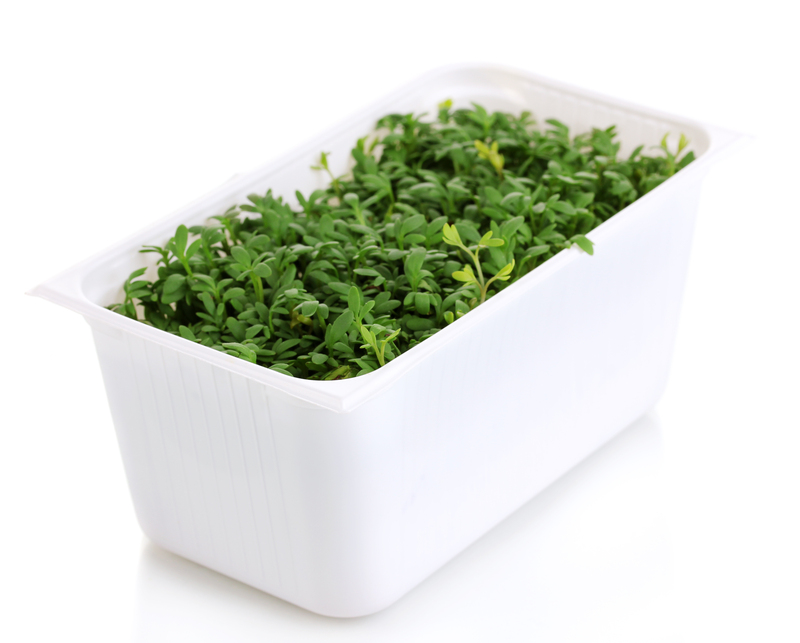Proactive Waste Prevention Methods for Your Home
Embracing proactive waste prevention methods in your home is not just a fashionable trend--it's an essential step toward reducing your environmental impact, saving money, and building a healthier, more sustainable lifestyle. In this comprehensive guide, we will cover innovative strategies and actionable tips to help you take control of your household waste before it even starts. Let's explore how to reduce, reuse, and recycle--and go far beyond the basics to make a real difference.
Why Proactive Waste Prevention Matters
Many households generate enormous quantities of waste--much of which ends up in overflowing landfills or polluting the environment. According to the Environmental Protection Agency, the average American produces about 4.9 pounds of waste each day. By taking proactive measures to prevent waste, we can significantly cut down the volume of trash and foster resource conservation.
- Environmental Benefits: Conserving resources, reducing pollution, and decreasing greenhouse gas emissions.
- Financial Savings: Spending less on disposable products and lowering garbage collection fees.
- Healthier Living: Choosing non-toxic, reusable products and reducing clutter for a safer home environment.
- Community Impact: Contributing to a cleaner, greener neighborhood and encouraging others by setting an example.

Comprehensive Proactive Waste Reduction Techniques
Waste prevention at home begins with mindful consumption and strategic planning. Below, we share a suite of proactive waste prevention techniques you can implement immediately.
1. Smart Shopping Decisions
Every purchase you make sends a signal to the marketplace. Practice eco-conscious consumerism to significantly reduce the waste created in your home.
- Create a Shopping List: Plan ahead to avoid impulse purchases that often lead to unnecessary waste.
- Opt for Minimal Packaging: Choose products with little or no packaging, or those packaged in recyclable materials.
- Buy in Bulk: Purchasing larger quantities can often eliminate excess packaging and is usually more economical.
- Avoid Single-Use Items: Invest in quality, reusable versions of kitchenware, cleaning supplies, and grocery bags.
- Support Local and Sustainable Brands: Local products often travel shorter distances and require less packaging, reducing overall waste.
2. Kitchen Waste Prevention Tactics
The kitchen is a primary source of household waste--but also the best place to target with proactive kitchen waste prevention methods.
- Compost Organic Scraps: Set up a backyard compost bin or use a kitchen composter for fruit and vegetable peels, coffee grounds, eggshells, and more. Composting can divert up to 30% of household waste from the landfill!
- Meal Planning: Organizing meals for the week helps utilize all ingredients effectively, preventing food spoilage and waste.
- Proper Food Storage: Invest in airtight containers to keep food fresh longer and use glass or silicone instead of disposable plastics.
- Creative Leftover Recipes: Transform leftovers into new meals or snacks--think soups, stir-fries, or casseroles.
- Buy Ugly Produce: Save oddly-shaped fruits and veggies that might otherwise go to waste--most taste just as good as their perfect counterparts!
3. Declutter with Purpose
Decluttering is more than just tossing things out--it's about responsibly rehoming and repurposing what you no longer need.
- Donate Usable Goods: Clothes, toys, electronics, and household goods can find new homes through local charities or donation centers.
- Organize a Swap: Host a neighborhood swap event for books, games, clothing, and even plants!
- Sell Online: Platforms like eBay, Facebook Marketplace, and Craigslist make it easy to pass on unwanted items.
- Repurpose Creatively: Upcycle glass jars as storage containers, old clothes into cleaning rags, or worn furniture into garden planters.
4. Embrace the Power of Repair
The old habit of "use and dispose" is a major driver of excessive waste. By embracing repair culture in your household, you can dramatically cut down on waste and save money in the long run.
- Learn Basic Repairs: Patching clothes, gluing broken ceramics, and fixing loose screws can extend the lifespan of many everyday items.
- Find Local Repair Cafes: Many communities host events where experts help you fix broken objects for free or at low cost.
- Source Replacement Parts: Look online or contact manufacturers for affordable spare parts rather than tossing an entire product.
5. Switch to Reusable Alternatives
Permanent swaps can be one of the most effective waste prevention methods for your home.
- Reusable Shopping Bags: Always keep sturdy totes in your car or by the door.
- Cloth Napkins and Towels: Replace disposable paper towels and napkins with washable cloth versions.
- Water Bottles and Coffee Cups: Carry your own to avoid single-use plastics on the go.
- Rechargeable Batteries: Switch to rechargeable options for remotes, toys, and electronics.
- Beeswax or Silicone Food Wraps: A sustainable alternative to single-use plastic wrap.
Recycling is Good--But Prevention is Better
While recycling remains a crucial aspect of sustainable waste management, preventing waste in the first place has a more significant and lasting impact. Every item you don't buy or throw away is a victory for the planet. Focus on reducing waste generation over simply handling it after it's created.
Enhance Recycling with Smart Practices
- Know What's Recyclable: Consult your local guidelines, as rules can vary dramatically from one place to another.
- Clean & Sort Materials: Rinse containers and separate by material to avoid contaminating batches.
- Don't Wish-Cycle: Only recycle items you know are accepted--placing non-recyclables in the bin can lead to more waste.
Composting: The Ultimate Organic Waste Solution
Home composting is one of the most effective and fulfilling waste prevention techniques. Not only does it shrink the amount of organic waste going to landfills, it also creates nutrient-rich compost for your garden or houseplants.
Simple Steps to Composting Success
- Choose the Right Bin: Select a composting system that fits your available space--heap, bin, or tumbler style all work well.
- Balance Greens and Browns: Mix food scraps, coffee grounds, and fresh grass clippings ("greens") with dry leaves, cardboard, and paper ("browns") for an optimal composting process.
- Maintain Moisture and Aeration: Turn the pile regularly and keep it moist but not soggy.
- Avoid Compost No-Nos: Do not add meat, dairy, or oily foods, which can attract pests and create odors.
Innovative Technology for Household Waste Prevention
New gadgets and digital tools can help minimize waste at home more efficiently than ever before.
- Food Waste Trackers: Smart scales and meal planning apps identify food you waste most often and help you avoid repeating mistakes.
- Digital Receipts: Choose electronic receipts and statements to cut paper clutter.
- Smart Appliances: Modern refrigerators and pantries help monitor food freshness and usage to reduce spoilage.
- Eco-Apps: Use apps that connect you with local buy-nothing groups, donation opportunities, or upcycling ideas.
Engage the Whole Family in Waste Prevention
Creating lasting change starts with building mindful habits for the whole family. Get everyone involved to maximize your household's waste reduction efforts.
- Set Family Challenges: Compete to see who can go the longest without producing trash or come up with the most creative reuse ideas.
- Educate Kids Early: Teach kids about recycling, composting, and the importance of reducing waste with fun activities and chores.
- Celebrate Milestones: Reward progress and share your successes with neighbors and friends to inspire broader community action.
Integrating Proactive Waste Prevention into Daily Routines
The easiest way to maintain low-waste habits is to weave them into your day-to-day activities. Here's how to make waste minimization second nature:
- Keep Reusables Handy: Place reusable bags, bottles, and containers by your entryway or in your bag.
- Pause Before Tossing: Train yourself and others to stop and think: Can this item be reused, donated, repurposed, or composted instead?
- Monitor Your Trash: Regularly check what ends up in your garbage bin; adjust shopping and usage habits accordingly to prevent repeat wastefulness.
- Maintain a Waste Prevention Checklist: List tasks and reminders on your fridge or family calendar to reinforce sustainable habits.

Commonly Asked Questions about Household Waste Prevention
How do I start reducing waste without feeling overwhelmed?
Start small! Focus on just one area at first, such as switching to cloth shopping bags or composting produce scraps. Gradually add new habits once they become routine--successful waste prevention is about steady progress, not instant perfection.
Can I practice proactive waste prevention methods in an apartment?
Absolutely. Many strategies--including meal planning, using reusable bags and bottles, repairing clothes, buying in bulk, and decluttering responsibly--require little or no outdoor space. For composting, look into countertop composters or community compost drop-offs.
What are some easy swaps to quickly reduce household waste?
- Switch paper towels for washable cloths.
- Use a reusable travel mug for coffee runs.
- Opt for bar soap instead of bottled body wash.
- Choose loose produce over pre-packaged fruits and vegetables.
- Download apps for digital receipts and coupons.
How can I motivate others in my household to join in?
Lead by example, explain the benefits, and make it fun. Setting goals and celebrating progress together helps create a supportive, low-waste household culture.
Conclusion: Make Proactive Waste Prevention Your Home's Standard
Preventing household waste isn't just a one-time challenge--it's a rewarding lifestyle that benefits your family, your community, and our planet. By practicing proactive waste prevention methods at home--from mindful buying and creative reuse to smart technology and family involvement--you can significantly reduce your ecological footprint and foster a more sustainable future.
Start today--one small step at a time. The cumulative impact of your actions can ripple outwards, making the world a cleaner, greener place for all.